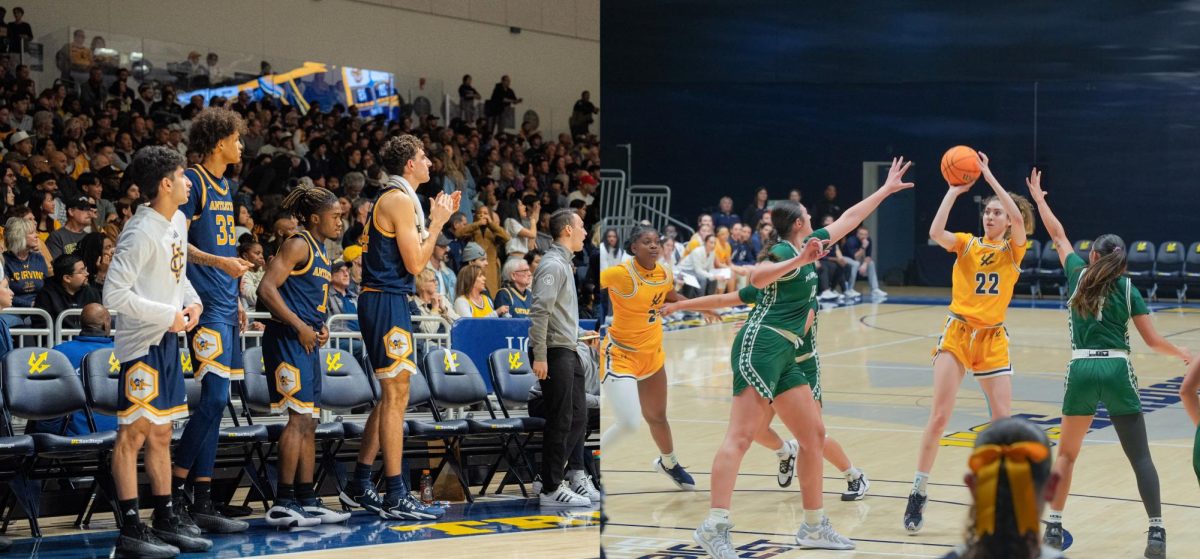Editor’s Note: This article was last updated at 8 p.m. on May 11. It was originally published at 5:30 p.m. on April 25.
The UCSD Guardian first received word at 10 a.m. on April 25 that 18 of the 36 UC San Diego students facing visa revocations have had their legal statuses restored in the Student and Exchange Visitor Information System portal. As of April 28, the University’s Federal FAQ’s Updates page reflects that “all previously terminated SEVIS records have now been reactivated” — not including the student who was deported at the border — and that, currently, “UC San Diego has 0 terminations, 35 reactivations and 1 deportation.”
Upon The Guardian’s request for further information about the student deported at the border, Matt Nagel, UCSD’s chief communications and marketing officer, said on April 25:
“The individual was deported at the border, so it was a different process.”
The International Services and Engagement Office has updated its website to reflect these new developments and provide further information on SEVIS reactivations:
“If a previously terminated SEVIS record is successfully reactivated, an F-1 or J-1 student regains the benefits associated with their non-immigrant status while physically present within the U.S.”
These reactivations follow news of other visa termination reversals across the country that broke on April 25, when the Justice Department announced the Trump administration’s plan to address visa revocations and confusion around the SEVIS terminations in several federal courts. This plan included pausing further revocations while Immigration and Customs Enforcement develops a new F-1 visa management policy.
In the meantime, all F-1 visa holders will have their records restored in the SEVIS portal, and as of April 28, all student records at UCSD have been restored — besides the one student that was deported. Pending the issuance of ICE’s new policy, these restorations may not be permanent. There is currently no publicly available timeline for the release of this policy.
Federal courts are the battleground for these student visa revocations and reversals. As of April 25, there are over 100 active lawsuits against the federal government, citing inconsistency, injustice, and failure to follow due process in these abrupt SEVIS terminations and visa revocations. Before the Justice Department’s announcements, around 40 federal judges had already granted temporary restraining orders.
Lawyers representing the federal government in these cases have been sharing this message from the Justice Department in courts and to news outlets:
“ICE is developing a policy that will provide a framework for SEVIS record terminations. Until such a policy is issued, the SEVIS records for plaintiff(s) in this case (and other similarly situated plaintiffs) will remain Active or shall be re-activated if not currently active and ICE will not modify the record solely based on the NCIC finding that resulted in the recent SEVIS record termination.”
Visa management occurs across several federal agencies; while visas are issued by the State Department, the SEVIS portal is traditionally monitored by universities. Recently, however, as the Trump administration has cracked down on international students, the Department of Homeland Security has terminated student records in SEVIS without notifying universities. Such interagency discrepancies have sent international students mixed signals about their legal status.
At many universities, including UCSD, administrators have learned of visa revocations through routine checks of the SEVIS portal. UCSD ISEO’s FAQ page provides information on the unprecedented nature of federal intervention in the portal:
“Unlike standard SEVIS Terminations which are usually conducted by the university for valid changes to a student’s visa status, these terminations are unique in that they are initiated by the federal government without prior notice to either the university or impacted students. In addition, there is little information provided by DHS on the reason for termination.”
University Communications told The Guardian last week that there has been no movement in the SEVIS portal since Friday, April 11.
This is an ongoing story. The Guardian will continue to provide updates here as they become available.
















